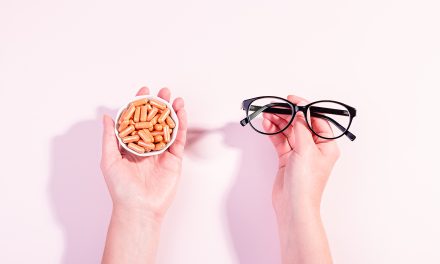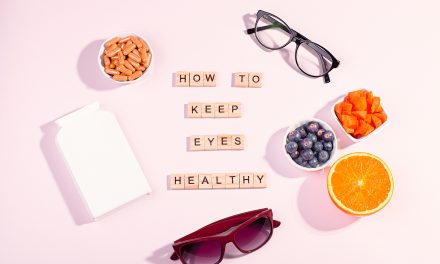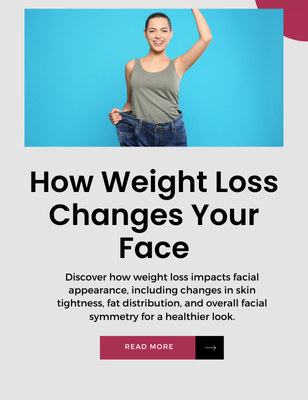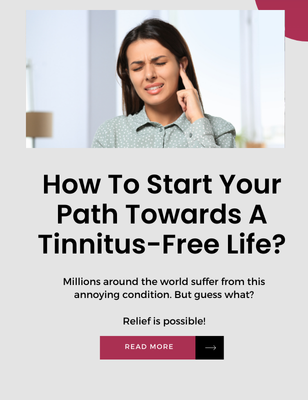Nearsightedness, or myopia, is a shared vision impairment with difficulty seeing distant objects. As people search for ways to manage and potentially improve their myopic condition, the interest in vision-supporting supplements has grown significantly. While traditional treatments like glasses, contact lenses, and corrective surgeries are prevalent, they are not without risks and limitations, leading individuals to explore alternative options focusing on nutrition and lifestyle changes.
Nutrition plays a crucial role in maintaining eye health, and specific vitamins and nutrients have been linked to the prevention and management of nearsightedness. Research has suggested that antioxidants and specific vitamins such as vitamin A, vitamin C, vitamin E, lutein, zeaxanthin, and omega-3 fatty acids might be beneficial for eye health. While supplements can offer a convenient way to consume these nutrients, it is generally recommended that they be taken as part of a holistic approach to eye health that includes a balanced diet and protective lifestyle measures.
Key Takeaways
- Proper nutrition is integral to maintaining eye health and potentially improving nearsightedness.
- A combination of antioxidants and vitamins is essential for optimal eye function.
- Incorporating a balanced diet and lifestyle changes enhances overall eye health and protection.
Understanding Nearsightedness
Nearsightedness, also referred to as myopia, is a vision condition characterized by difficulty seeing distant objects clearly, while close objects appear normal. In nearsighted individuals, the lens and cornea refract incoming light in such a way that images are focused in front of the retina rather than directly on its surface. This improper refraction distorts vision when looking at distant objects.
There are multiple risk factors for developing nearsightedness. Here are a few:
- Genetics: A family history of myopia increases one’s risk.
- Environmental factors: Prolonged close-up tasks, like reading or using computers, may play a role.
- Age: Myopia often begins in childhood and can progress during the growth years.
Here is an overview of how nearsightedness affects different age groups:
- Children: Diagnosed often before age 20, nearsightedness can be detected early through vision screening and eye exams.
- Adults: While progression typically slows, adults may require changes in prescription or corrective measures.
Management options include eyeglasses, contact lenses, and corrective surgery, with regular eye exams essential for monitoring the condition. Deviations from standard vision can range from mild to severe, sometimes impacting legal definitions of blindness.
When considering supplements for nearsightedness, understanding the condition’s fundamentals ensures informed choices and discussions with healthcare providers.
Role of Nutrition in Eye Health
Good nutrition is crucial for maintaining healthy eyes. The body requires a variety of nutrients to sustain overall health, which includes the well-being of the eyes. A nutrient-dense diet rich in vitamins and antioxidants plays a significant role in eye health, particularly in supporting the function of the retina and protecting the blood vessels that supply the eye.
Vitamins such as A, C, and E have been recognized for their role in eye health. Vitamin A is essential for maintaining good vision, especially in low-light conditions, and it helps protect the surface of the eye (the cornea). The antioxidants found in vitamin C and E contribute to the health of the eye’s tissues, reducing the oxidative stress that can lead to degeneration:
- Vitamin A: Vital for good vision; deficiency can lead to night blindness.
- Vitamin C: Supports the health of ocular blood vessels.
- Vitamin E: Protects the eyes against damage from free radicals.
A healthy diet should also include nutrients like Omega-3 fatty acids, which are beneficial for the maintenance of eye moisture and overall ocular health. Foods rich in these fatty acids, such as fish and flaxseeds, can help to preserve the integrity and functionality of the retina.
Incorporating a range of colorful fruits and vegetables can ensure an intake of these essential nutrients and promote eye health. Foods such as carrots, leafy greens, and berries are highly recommended for their vitamin and antioxidant content.
For individuals concerned about preventing or managing nearsightedness (myopia), focusing on a balanced diet that supports eye health can be a helpful aspect of their overall strategy. While nutrition alone cannot correct myopia, it can contribute to the strength and health of the eyes.
Key Vitamins and Minerals
The right balance of vitamins and minerals is essential for maintaining eye health, especially for individuals with nearsightedness. Certain nutrients play a critical role in protecting the eyes’ retina and macula and may slow the progression of nearsightedness.
Vitamin A
Vitamin A is crucial for good vision. It helps maintain a clear cornea, which is the outside covering of the eye. This vitamin is also a component of rhodopsin, a protein in the eyes that allows them to see in low light conditions. Carotenoids, like beta-carotene, are precursors to vitamin A and are found in various colorful fruits and vegetables.
Vitamin C
Vital for the health of blood vessels in the eyes, Vitamin C also functions as an antioxidant that can help regenerate other antioxidants, including vitamin E. The body needs it for the growth and repair of tissues in all parts of the body, and the eyes are no exception. It is believed that vitamin C might contribute to the health of the eye’s macula and the prevention of macular degeneration.
Vitamin E
This antioxidant protects cells from oxidative stress, a type of damage to cells caused by free radicals. Vitamin E‘s role in eye health is linked to its ability to protect the eyes from harmful free radicals that can damage cells, proteins, and DNA within the retina. Maintaining adequate levels of vitamin E may be beneficial in reducing the risk of age-related damage to the eyes.
Zinc
Zinc is an essential trace mineral that plays a vital role in transporting vitamin A from the liver to the retina in order to produce melanin, a protective pigment in the eyes. Zinc is concentrated in the eye, particularly in the retina and choroid, the vascular tissue that lies under the retina. This mineral’s presence is crucial for maintaining the health of the retina and may help in preventing or slowing the progression of nearsightedness and other eye-related issues.
Importance of Antioxidants
Antioxidants are crucial in combating oxidative stress caused by free radicals, which can lead to cellular damage in the eyes. They help protect the eyes, especially in conditions like nearsightedness, by preserving vision health.
Lutein and Zeaxanthin
These carotenoids, found in the retina, filter harmful blue light and act as antioxidants. A diet rich in lutein and zeaxanthin can help maintain eye health and may reduce the risk of chronic eye diseases.
- Lutein: Commonly found in green leafy vegetables, eggs, and citrus.
- Zeaxanthin: Abundant in corn, oranges, and honeydew melon.
Omega-3 Fatty Acids
Omega-3 fatty acids are vital for retinal health and have been shown to improve visual development. They can help mitigate the risk of age-related macular degeneration and may play a role in preventing or managing nearsightedness.
- Sources: Includes fish like salmon, as well as flaxseeds and walnuts.
- Benefits: Anti-inflammatory properties help reduce the risk of ocular damage from oxidative stress.
Benefits of a Balanced Diet
A balanced diet offers numerous benefits for individuals dealing with nearsightedness. Not only does it support overall health, but specific nutrients can play a crucial role in eye health.
Fruits and vegetables are foundational to such a diet, providing essential vitamins and antioxidants. Leafy green vegetables, especially spinach and broccoli, are rich in lutein and zeaxanthin. These carotenoids are known for their role in maintaining good vision and may slow the progression of nearsightedness.
Consuming avocados, which are high in lutein, and nuts and seeds that offer omega-3 fatty acids, is encouraged. These nutrients contribute to retinal health and may help in managing nearsightedness.
The inclusion of fish, like salmon and sardines, is beneficial due to their omega-3 fatty acid content, particularly DHA. DHA is instrumental in the development and maintenance of eye health.
Here’s a brief overview of the key components:
| Food Category | Examples | Nutrients Beneficial for Eyes |
|---|---|---|
| Vegetables | Spinach, Broccoli | Lutein, Zeaxanthin, Vitamin E |
| Fruits | Avocados | Lutein, Vitamin C, Vitamin E |
| Nuts & Seeds | Walnuts, Flaxseeds | Omega-3 Fatty Acids |
| Fish | Salmon, Sardines | DHA, Omega-3 Fatty Acids |
A diet with a variety of these foods may help individuals with nearsightedness maintain better eye health. It is important to remember, however, that while a balanced diet can contribute to eye health, it should not replace professional medical advice or prescribed treatments.
Specific Foods for Eye Health
Incorporating specific foods into one’s diet can be advantageous for eye health, especially for conditions such as myopia. Certain nutrients found in these foods contribute to maintaining and potentially improving visual acuity.
Green Leafy Vegetables
Green leafy vegetables are a powerhouse of nutrients beneficial for eye health. Spinach and kale, for instance, are rich in lutein and zeaxanthin, two types of carotenoids that have been linked to a reduced risk of chronic eye diseases. Including these vegetables in your diet can provide protective effects against nearsightedness.
Fatty Fish
Fatty fish like salmon are excellent for overall health, particularly for the eyes. They are a high-quality source of omega-3 fatty acids, which are essential for visual development and retinal function. Regular consumption of salmon can support eye health due to its capability to potentially reduce the risk of myopia.
Colorful Fruits and Vegetables
A selection of colorful fruits and vegetables, such as carrots, bell peppers, strawberries, and tomatoes, can be instrumental for eye health. These items contain various vitamins and antioxidants beneficial for eye function. Carrots are well-known for their beta-carotene content, while bell peppers provide an abundance of vitamin C, both crucial for maintaining eye health and potentially slowing the progression of nearsightedness.
Preventing Eye Disorders
When addressing the prevention of eye disorders, it’s essential to consider two major conditions that can impact vision: cataracts and glaucoma. Both are highly influenced by factors such as age, lifestyle, and health management. Key preventive measures against these conditions involve nutritional intake, lifestyle adjustments, and regular eye examinations.
Cataracts and Age-Related Issues
Cataracts, a clouding of the eye’s lens, can significantly reduce visual acuity. To prevent the onset of cataracts and age-related macular degeneration (AMD), which both tend to develop as individuals age, one should focus on dietary choices rich in antioxidants. Foods high in vitamins C and E are thought to be protective against these eye disorders. Adding green leafy vegetables and omega-3 fatty acids to one’s diet could be particularly beneficial for maintaining lens clarity and retinal health.
Regular screenings are also vital, as they can detect the early formation of cataracts and AMD. By using protective eyewear that filters UV light, one can decrease the risk of oxidative stress on the eye’s structures, which may contribute to both conditions.
Glaucoma Risks
Glaucoma, characterized by damage to the optic nerve, often linked to increased pressure within the eye, requires a proactive approach to prevent irreversible vision loss. The risk of inflammation and nerve damage may be reduced by maintaining a healthy weight, engaging in regular physical activity, and by controlling systemic conditions such as hypertension and diabetes.
It’s critical for individuals, especially those with a family history of glaucoma, to have frequent eye pressure checks. In some cases, eye drops prescribed for glaucoma can decrease internal eye pressure by improving fluid drainage or by decreasing the amount of fluid the eye makes.
While age and genetics play a role in these disorders, lifestyle adjustments and proper eye care can mitigate the risks. It is generally recommended that individuals, particularly as they approach older age, partake in yearly comprehensive eye exams. These exams are an essential strategy in detecting early signs of cataracts, macular degeneration, and glaucoma before they progress.
Protective Measures and Lifestyle
Adopting protective measures and amending lifestyle habits can greatly aid in managing nearsightedness. These adjustments focus on safeguarding the eyes from external factors and reducing eye strain that may exacerbate vision problems.
Sunglasses and Eyewear
One critical component in the protection against nearsightedness is the use of protective eyewear. When outdoors, sunglasses that block 100% of UV rays should be worn to shield the eyes from harmful solar radiation. For those who spend significant time in front of screens, eyeglasses with blue light filtering capabilities can help mitigate the risk of eye strain and potential headaches.
Regular Exercise and Eye Strain
Regular exercise can improve overall health and potentially benefit eye health. However, prolonged periods focusing on a single task can contribute to eye strain. To counteract this, individuals should employ the 20-20-20 rule: every 20 minutes, take a 20-second break to view something 20 feet away. This practice helps to regulate the frequency of one’s blink rate and provides the eyes with necessary intermittent rest.
Consulting Healthcare Professionals
Before considering supplements for nearsightedness, one should prioritize consultation with healthcare professionals. They provide foundational guidance on managing vision health and determining appropriate treatments or therapies.
Routine Eye Exams
Regular eye exams conducted by an optometrist are crucial for maintaining optimal vision health. Through comprehensive assessments, these exams not only gauge one’s current level of vision but also can identify the early onset of conditions like nearsightedness. Adults are advised to have their eyes checked:
- Every 1 to 2 years if aged between 18 and 60
- Annually if over 60 or with known vision problems
Children should undergo eye exams to ensure proper vision development, especially before starting school and periodically throughout their educational years.
When to See an Ophthalmologist
An ophthalmologist should be consulted when specialized care is required. If an optometrist detects any signs of vision issues that may need medical intervention, further examination or treatments from an ophthalmologist is recommended. Situations that necessitate an ophthalmologist’s expertise include:
- Significant changes in vision or progressive nearsightedness
- Considering corrective options beyond glasses or contact lenses, such as surgery
- When a condition might require therapy that an optometrist cannot provide
By engaging with these healthcare professionals, one can ensure they receive accurate diagnosis, management advice, and the most effective treatments for nearsightedness.
Supplement Recommendations
When considering supplements for enhancing eye health, particularly in cases of nearsightedness, it’s beneficial to focus on certain nutrients known for their positive impact on the eyes. Antioxidants play an essential role in maintaining retinal health and could help manage nearsightedness effects.
A widely recognized supplement formula is the Age-Related Eye Disease Study (AREDS), which recommends a combination of antioxidants and minerals. For tailored supplement advice, consulting with a doctor is always recommended to ensure safety and efficacy.
Key nutrients to look for in supplements:
- Lutein: Often paired with zeaxanthin, lutein is vital for eye health, as it is found naturally in the retina.
- Zeaxanthin: Works synergistically with lutein to protect the eyes from harmful light sources.
- Vitamin C, Vitamin E, and Zinc: These antioxidants and minerals support the eye’s overall health and may slow the progression of nearsightedness.
| Nutrient | Benefit for Eye Health |
|---|---|
| Lutein | Protects the retina |
| Zeaxanthin | Shields eye from UV light |
| Vitamin C | Supports structure of the eye |
| Vitamin E | Combats free radical damage |
| Zinc | Helps with night vision |
It’s important to note that while supplements can aid in maintaining eye health, they are not a cure for nearsightedness. A balanced approach including a nutrient-rich diet, regular exercise, and proper eye care alongside supplements is advisable. Always consult a healthcare provider before adding new supplements to your routine to ensure they are appropriate for your specific health needs.
Frequently Asked Questions
This section addresses common inquiries regarding supplements for nearsightedness, discussing the essentials for eye health and the effectiveness of various nutrients in managing and potentially improving nearsighted vision.
What vitamins are essential to maintain healthy eyesight?
Vitamins such as Vitamin A, Vitamin C, and Vitamin E are crucial for maintaining eye health. They contribute to the protection of the eyes from harmful oxidants and support overall visual functions.
How can one naturally improve their nearsightedness?
Improvements in nearsightedness can sometimes be aided by exercises that strengthen the eye’s focusing ability and taking regular breaks from screen time to reduce eye strain.
Are eye supplements effective in enhancing vision clarity?
While eye supplements containing ingredients like lutein and zeaxanthin can help to enhance vision clarity, they should be used as part of an overall eye health strategy, which may include a balanced diet and regular eye exams.
Can a vitamin D deficiency contribute to myopia, and can its supplementation help?
Research has suggested that a deficiency in vitamin D might be linked to an increased risk of myopia, and that proper vitamin D supplementation could play a role in myopia prevention, although more research is needed.
What are the top eye vitamins that help with blurry vision?
Essential vitamins known to help with blurry vision include vitamins A, C, and E, and minerals like zinc. They contribute to maintaining clear cornea and overall eye health.
Does vitamin A have a role in reversing the effects of nearsightedness?
Vitamin A is vital for vision as it maintains a clear cornea, which is the outer coating of the eye. However, there is no conclusive evidence that it can reverse the effects of nearsightedness; its role is more about maintaining good eye health and preventing further deterioration.





















